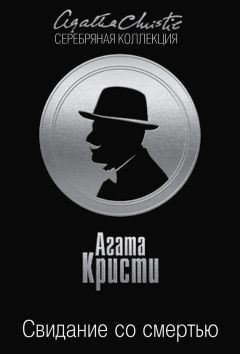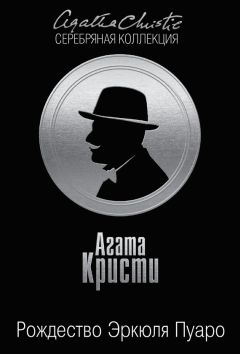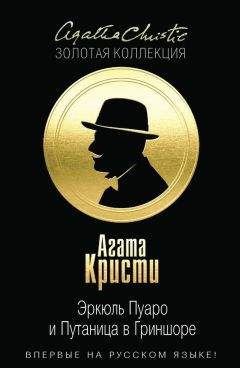Arthur Conan Doyle - Английский язык с Шерлоком Холмсом. Собака Баскервилей
beyond [bɪˈjɔnd], sinister [ˈsɪnɪstǝ], public [ˈpʌblɪk]
"My inquiries show beyond all question that the family portrait did not lie, and that this fellow was indeed a Baskerville. He was a son of that Rodger Baskerville, the younger brother of Sir Charles, who fled with a sinister reputation to South America, where he was said to have died unmarried. He did, as a matter of fact, marry, and had one child, this fellow, whose real name is the same as his father. He married Beryl Garcia, one of the beauties of Costa Rica, and, having purloined a considerable sum of public money, he changed his name to Vandeleur and fled to England, where he established a school in the east of Yorkshire.
"His reason for attempting this special line of business (причиной выбора такого особого рода деятельности; line — линия; занятие; род деятельности; business — дело; занятие) was that he had struck up an acquaintance with a consumptive tutor (стало то, что он познакомился с больным туберкулезом учителем; to strike up an acquaintance — завязать знакомство; tutor — домашний учитель) upon the voyage home (во время путешествия домой), and that he had used this man's ability (и что он воспользовался способностью этого человека) to make the undertaking a success (обеспечить делу успех; undertaking — предприятие; дело). Fraser, the tutor, died, however (однако Фрэйзер, учитель, умер), and the school which had begun well (и школа, у которой было удачное начало: «которая начинала хорошо») sank from disrepute into infamy (переходила от сомнительной репутации к скандальной = опускалась все ниже и ниже; to sink — тонуть; опускаться, падать; ронять; infamy — дурная слава; скандальная репутация). The Vandeleurs found it convenient to change their name to Stapleton (Вэнделеры сочли удобным изменить свою фамилию на Стэплтон; convenient — удобный, подходящий; пригодный), and he brought the remains of his fortune (и он привез остатки своего состояния), his schemes for the future (свои планы на будущее), and his taste for entomology to the south of England (и свое пристрастие к энтомологии на юг Англии; taste — вкус; склонность). I learn at the British Museum (я узнал в Британском музее) that he was a recognised authority upon the subject (что он был признанным авторитетом в /этой/ области), and that the name of Vandeleur has been permanently attached to a certain moth (и что фамилия Вэнделер была навсегда закреплена = дана какому-то мотыльку; certain — точный; некий) which he had, in his Yorkshire days, been the first to describe (которого он первым описал, еще живя в Йоркшире: «в свои йоркширские дни»).
consumptive [kǝnˈsʌmptɪv], tutor [ˈtju:tǝ], infamy [ˈɪnfǝmɪ]
"His reason for attempting this special line of business was that he had struck up an acquaintance with a consumptive tutor upon the voyage home, and that he had used this man's ability to make the undertaking a success. Fraser, the tutor, died, however, and the school which had begun well sank from disrepute into infamy. The Vandeleurs found it convenient to change their name to Stapleton, and he brought the remains of his fortune, his schemes for the future, and his taste for entomology to the south of England. I learn at the British Museum that he was a recognised authority upon the subject, and that the name of Vandeleur has been permanently attached to a certain moth which he had, in his Yorkshire days, been the first to describe.
"We now come to that portion of his life (теперь мы подошли к той части его жизни) which has proved to be of such intense interest to us (которая оказалась столь интересна для нас). The fellow had evidently made inquiry (этот человек, очевидно, сделал запрос), and found that only two lives (и обнаружил, что только две жизни) intervened between him and a valuable estate (находятся между ним и ценным наследством; to intervene — вмешиваться; находиться между; estate — поместье; имущество). When he went to Devonshire (когда он приехал в Девоншир) his plans were, I believe, exceedingly hazy (его планы = намерения были, я полагаю, весьма туманны; haze — легкий туман; /атмосферная/ дымка), but that he meant mischief from the first is evident (но то, что он с самого начала предполагал недоброе, — очевидно; to mean; from the first — с самого начала) from the way in which he took his wife with him in the character of his sister (из того, как он взял с собой жену в качестве своей сестры). The idea of using her as a decoy (мысль использовать ее как приманку) was clearly already in his mind (уже ясно сформировалась: «была» в его мозгу), though he may not have been certain (хотя он мог и не быть уверен) how the details of his plot were to be arranged (в деталях своего плана: «как детали его плана должны быть подготовлены»; to arrange — приводить в порядок, расставлять; устраивать, организовывать, подготавливать). He meant in the end to have the estate (в итоге он намеревался получить наследство; in the end — в конечном счете), and he was ready to use any tool (и он был готов использовать любой инструмент) or run any risk for that end (или пойти на любой риск для такого итога). His first act was to establish himself as near to his ancestral home as he could (его первым действием было устроиться = поселиться так близко к родовому гнезду, как /только/ можно; ancestral home — отчий дом), and his second was to cultivate a friendship with Sir Charles Baskerville and with the neighbours (а вторым — подружиться с сэром Чарльзом Баскервилем и его соседями; to cultivate — обрабатывать /почву/; искать чьего-либо общества, дружбы).
intense [ɪnˈtens], intervene [ˌɪntǝ:ˈvi:n], ancestral [ænˈsestr(ǝ)l]
"We now come to that portion of his life which has proved to be of such intense interest to us. The fellow had evidently made inquiry, and found that only two lives intervened between him and a valuable estate. When he went to Devonshire his plans were, I believe, exceedingly hazy, but that he meant mischief from the first is evident from the way in which he took his wife with him in the character of his sister. The idea of using her as a decoy was clearly already in his mind, though he may not have been certain how the details of his plot were to be arranged. He meant in the end to have the estate, and he was ready to use any tool or run any risk for that end. His first act was to establish himself as near to his ancestral home as he could, and his second was to cultivate a friendship with Sir Charles Baskerville and with the neighbours.
"The Baronet himself told him about the family hound (баронет сам рассказал ему о «фамильной» собаке), and so prepared the way for his own death (и таким образом подготовил путь для своей собственной смерти). Stapleton, as I will continue to call him (Стэплтон, как я буду продолжать называть его), knew that the old man's heart was weak (знал, что сердце у старика слабое) and that a shock would kill him (и что потрясение убьет его). So much he had learned from Dr. Mortimer (все это: «так много» он узнал от доктора Мортимера). He had heard also that Sir Charles was superstitious (он слышал также, что сэр Чарльз был суеверен) and had taken this grim legend very seriously (и воспринимал эту мрачную легенду весьма серьезно; grim — жестокий; мрачный). His ingenious mind instantly suggested a way (его изобретательный ум мгновенно подсказал способ) by which the Baronet could be done to death (которым можно убить баронета; to do to death — убить), and yet it would be hardly possible (и к тому же едва ли возможно) to bring home the guilt to the real murderer (изобличить настоящего убийцу; guilt — вина; виновность).
continue [kǝnˈtɪnju:], call [ˈkɔ:l], guilt [ɡɪlt]
"The Baronet himself told him about the family hound, and so prepared the way for his own death. Stapleton, as I will continue to call him, knew that the old man's heart was weak and that a shock would kill him. So much he had learned from Dr. Mortimer. He had heard also that Sir Charles was superstitious and had taken this grim legend very seriously. His ingenious mind instantly suggested a way by which the Baronet could be done to death, and yet it would be hardly possible to bring home the guilt to the real murderer.
"Having conceived the idea (задумав эту мысль; to conceive — забеременеть, зачать; вбить себе в голову; полагать, размышлять; постигать; представлять себе) he proceeded to carry it out with considerable finesse (он приступил к ее осуществлению со значительной /долей/ хитрости; to proceed to — приступать; браться за; to carry out — выполнять). An ordinary schemer would have been content to work with a savage hound (обычный преступник: «интриган» довольствовался бы работой со злой собакой; content — удовлетворенный). The use of artificial means (использование искусственных средств) to make the creature diabolical (чтобы сделать животное дьявольским) was a flash of genius upon his part (было вспышкой гениальности = гениальной идеей с его стороны). The dog he bought in London (собаку он купил в Лондоне) from Ross and Mangles, the dealers in Fulham Road (у Росса и Мэнглеса, торговцев на Фулхэм-роуд). It was the strongest and most savage in their possession (она была самая сильная и наиболее свирепая в их владении = из тех, что у них были). He brought it down by the North Devon line (он привез ее по Северной девонширской ветке) and walked a great distance over the moor (и прошел пешком большое расстояние по болотам) so as to get it home without exciting any remarks (так, чтобы провести ее домой, не возбуждая лишнего интереса; remark — замечание; наблюдение). He had already on his insect hunts learned (он уже узнал во время своей охоты за насекомыми) to penetrate the Grimpen Mire (как проникнуть /в сердце/ Гримпенской трясины), and so had found a safe hiding-place for the creature (и таким образом нашел безопасное потаенное место для животного). Here he kennelled it and waited his chance (здесь он держал ее в конуре и дожидался удобного случая; chance — случайность; удачное стечение обстоятельств; kennel — собачья конура).
finesse [fɪˈnes], schemer [ˈski:mǝ], excite [ɪkˈsaɪt]
"Having conceived the idea he proceeded to carry it out with considerable finesse. An ordinary schemer would have been content to work with a savage hound. The use of artificial means to make the creature diabolical was a flash of genius upon his part. The dog he bought in London from Ross and Mangles, the dealers in Fulham Road. It was the strongest and most savage in their possession. He brought it down by the North Devon line and walked a great distance over the moor so as to get it home without exciting any remarks. He had already on his insect hunts learned to penetrate the Grimpen Mire, and so had found a safe hiding-place for the creature. Here he kennelled it and waited his chance.
"But it was some time coming (но ему пришлось ждать, когда наступит подходящее время; to come — приходить). The old gentleman could not be decoyed outside of his grounds at night (/он/ не мог выманить пожилого джентльмена из своих владений ночью; grounds — угодья). Several times Stapleton lurked about with his hound (несколько раз Стэплтон прятался /неподалеку/ со своей собакой; to lurk — скрываться, прятаться), but without avail (но безрезультатно; avail — выгода, польза). It was during these fruitless quests (во время этих бесплодных поисков) that he, or rather his ally, was seen by peasants (он или, скорее, его друг, был замечен крестьянами), and that the legend of the demon dog (и легенда о демонической собаке) received a new confirmation (получила новое подтверждение). He had hoped that his wife might lure Sir Charles to his ruin (он надеялся, что его жена может, соблазнив сэра Чарльза, привести его к гибели; ruin — разорение; гибель), but here she proved unexpectedly independent (но здесь она оказалась неожиданно независимой = несговорчивой). She would not endeavour (она не хотела) to entangle the old gentleman in a sentimental attachment (вовлекать старого джентльмена в сердечные/любовные отношения; sentimental — сентиментальный, чувствительный; основанный на чувствах; attachment — привязанность) which might deliver him over to his enemy (которые могли доставить его /прямо в руки/ его врага). Threats and even, I am sorry to say, blows (угрозы и даже, с прискорбием говорю, побои; I am sorry to say — простите, прошу прощения /при возражении, выражении недовольства/) refused to move her (не помогали заставить ее; to refuse — отказываться; to move — двигать; заставлять). She would have nothing to do with it (она не имела никакого отношения к этому; would — указывает на повторяющееся действие в прошлом; to have nothing to do with — не иметь ничего общего с /кем-либо или чем-либо/), and for a time Stapleton was at a deadlock (и на время Стэплтон оказался в тупике).




